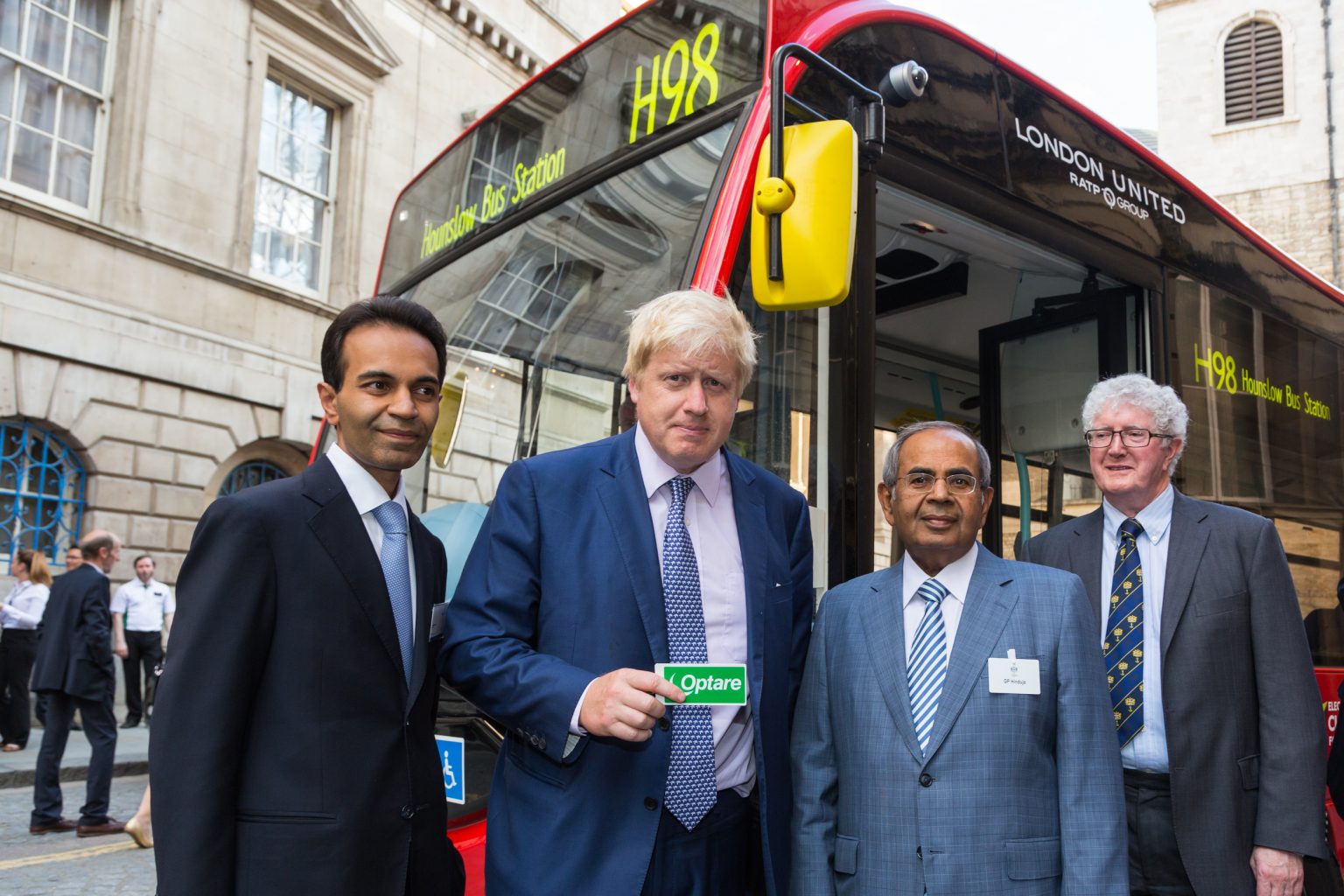The Mayor of London officially welcomed the introduction of four British built, pure electric buses yesterday evening (29 July) at an air quality event at The Mansion House.
- The four buses, in service on route H98, deliver significant air quality benefits due to zero tail pipe emissions
- Lower running and maintenance costs compared to a diesel single deck bus
- Continuing commitment to trial emission free transport in the capital
The four Optare MetroCity single deck buses are currently being trialled on route H98, which operates between Hayes and Hounslow. They are manufactured by Optare, part of the Hinduja Group, a British bus manufacturer based in Sherburn in Elmet, North Yorkshire, and are part funded from the Department of Transport’s (DfT) Green Bus Fund. The buses demonstrate Transport for London’s (TfL) continuing commitment to trialling new emission free technology in the capital.
The introduction of the four pure electric Optare MetroCity buses is the first step of the Mayor’s plan for all single deck buses in central London to be zero emission at tailpipe, as part of the world’s first Ultra Low Emission Zone, from 2020. This brings the total number of electric buses now in service in London to six. The first two electric buses in London have been operating on routes 507 and 521 since last December. A further two are expected to enter service later this year.
Passengers will notice that pure electric buses offer much lower noise and vibration levels compared to diesel vehicles, with TfL benefiting from lower maintenance and running costs. These buses have zero tail pipe emissions, resulting in lower carbon emissions and improved air quality. The trials will help TfL develop plans for greater use of electric buses in central London in the future, contributing to the Mayor’s vision of a central London Ultra Low Emission Zone.
Mike Weston, TfL’s Director of Buses, said: “The introduction of these new pure electric vehicles is part of our continuing assessment of the technology, to ensure it can handle the capital’s challenging operational environment. We will be closely monitoring the results of the trials, which may help us adopt this new clean technology more widely in London.”
Mr. Gopichand Hinduja, Co-Chairman of the Hinduja Group, said: “Optare’s MetroCity electric vehicle is a prime example of the UK’s manufacturing excellence, technology and innovation coming together to provide a zero emissions solution to improve air quality in London. We look forward to seeing more of these vehicles operating in London and cities across the UK and Europe in the future. Optare is crucial to Hinduja Group’s flagship company, Ashok Leyland’s future global strategy: It is the hub for the company’s expansion in Europe and Worldwide.”

These electric bus trials will be used to establish whether the technology can stand up to the rigours of operating in an intense urban environment such as London. The manufacturer’s tests demonstrated that while the initial capital cost of these vehicles was more than that of standard diesel, the significantly lower running and maintenance costs would offset this within the typical lifetime of the vehicle. The buses take around five hours to fully charge overnight, or two hours using fast charge technology and have a range of up to 100 miles depending on operating conditions

The electric bus trial is one of the many measures the Mayor has introduced to make London’s bus fleet more environmentally friendly, including the operation of zero emission hydrogen buses on Route RV1 between Covent Garden and Tower Gateway and delivering Europe’s largest hybrid bus fleet. Around eight hundred hybrid buses now operate on the capital’s roads, including the New Routemasters, with more being introduced in a rolling programme. By 2016 there will be more than 1,700 hybrid buses in service on London’s streets representing 20 per cent of the total bus fleet. TfL has also recently completed an extensive retrofit programme over 1,000 older buses which involves fitting them with an innovative system called Selective Catalytic Reduction (SCR), reducing emissions of harmful oxides of nitrogen (NOx) by up to 88 per cent.


Need more info?
If you need more information about our solutions or our company then get in touch.
Contact us

